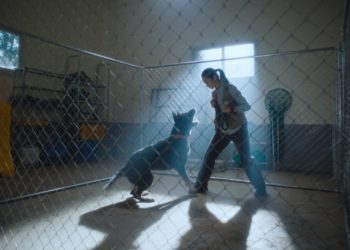In June, Robert F. Kennedy Jr. fired all 17 members of the Advisory Committee on Immunization Practices, which makes recommendations about the childhood vaccine schedule, claiming the move would “restore public trust in vaccines.” The new panel was assembled quickly, and five new members were added earlier this week, days before A.C.I.P. met on Thursday.
When you set fire to institutional knowledge and quickly hire a bunch of people, some of whom have a history of vaccine skepticism, you get an ad hoc mess — not the “gold standard” science Mr. Kennedy and his team keep promising. At one point, the A.C.I.P. member Dr. Cody Meissner abstained from voting on an insurance coverage question because, he said, “I’m not quite sure what I’m voting for,” which captures the level of confusion on display, and also Dr. Meissner’s admirable commitment to doing his job despite the disorganization.
Perhaps as a result of this chaos, on Friday morning A.C.I.P. decided to postpone a planned vote on the hepatitis B vaccine. On Thursday, the committee rescinded the use of the M.M.R.V. vaccine, which combines immunizations for measles, mumps, rubella and chickenpox (varicella), rather than having separate shots for M.M.R. and chickenpox — but only for the first dose of the M.M.R.V. shot, which has been given to children at 12 to 15 months old. The second dose of the M.M.R.V. vaccine is given after a child is 4, and that is still recommended.
But the A.C.I.P. also voted to continue paying for the first M.M.R.V. shot through the federal Vaccines for Children program. If this sounds bizarre and confusing, that’s because it is — and the committee voted again on the same topic Friday morning, reversing the initial decision. As of this writing, the panelists were still arguing about whether Covid-19 vaccines work at preventing infection, which feels like a Twitter thread from 2021.
Mr. Kennedy’s ideology looms over so much of this.
In a separate hearing on Wednesday, the ousted Centers for Disease Control and Prevention director Susan Monarez said that Mr. Kennedy told her “there was no science or evidence associated with the childhood vaccine schedule,” and that if she wouldn’t agree to changes to the schedule without having seen them first, he would fire her. Though the outcome of this week’s meetings wasn’t as bad as many expected — there was concern that the hepatitis B vaccine might be delayed — Mr. Kennedy’s antipathy toward the regular childhood vaccine schedule seems clear.
Last week Senator Bill Cassidy called for Mr. Kennedy to publicly encourage parents to have their children get the pertussis vaccine, which he has not yet done, despite the fact that in the past year alone at least four infants — two in Kentucky and two in Louisiana — died from pertussis. Neither the infants nor their mothers were vaccinated in the Kentucky cases. And as I have said before, as long as Mr. Kennedy remains in office, his presence will signal to many parents that vaccines are not to be trusted.
That message is percolating, especially among younger parents, who are so far removed from the reality of pre-vaccine outbreaks that they may not understand the peril. A poll released earlier this week from KFF and The Washington Post noted, “Parents under age 35 are also less likely than older parents — particularly those ages 50 and older — to say they are either ‘very’ or ‘somewhat confident’ that routine vaccines are safe for children.”
We definitely need to restore America’s trust in vaccines, but the amateur hour A.C.I.P. display isn’t going to do it.
Jessica Grose is an Opinion writer for The Times, covering family, religion, education, culture and the way we live now.
The Times is committed to publishing a diversity of letters to the editor. We’d like to hear what you think about this or any of our articles. Here are some tips. And here’s our email: [email protected].
Follow the New York Times Opinion section on Facebook, Instagram, TikTok, Bluesky, WhatsApp and Threads.
Jessica Grose is an Opinion writer for The Times, covering family, religion, education, culture and the way we live now.
The post The Confusing Mess at the Vaccine Meeting appeared first on New York Times.




